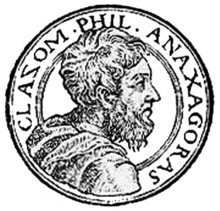Research of nutrition and nutritional science
Antiquity: Start of scientific research on nutrition
Around 3000 BC the Vedic texts made mention of scientific research on nutrition.[citation needed][example needed] The first[citation needed] recorded dietary advice, carved into a Babylonian stone tablet in about 2500 BC, cautioned those with pain inside to avoid eating onions for three days. Scurvy, later found to be a vitamin C deficiency, was first described in 1500 BC in the Ebers Papyrus.[157]
According to Walter Gratzer, the study of nutrition probably began during the 6th century BC. In China, the concept of qi developed, a spirit or "wind" similar to what Western Europeans later called pneuma.[158] Food was classified into "hot" (for example, meats, blood, ginger, and hot spices) and "cold" (green vegetables) in China, India, Malaya, and Persia.[159] Humours developed perhaps first in China alongside qi.[158] Ho the Physician concluded that diseases are caused by deficiencies of elements (Wu Xing: fire, water, earth, wood, and metal), and he classified diseases as well as prescribed diets.[159] About the same time in Italy, Alcmaeon of Croton (a Greek) wrote of the importance of equilibrium between what goes in and what goes out, and warned that imbalance would result in disease marked by obesity or emaciation.[160]
Around 475 BC, Anaxagoras wrote that food is absorbed by the human body and, therefore, contains "homeomerics" (generative components), suggesting the existence of nutrients.[161] Around 400 BC, Hippocrates, who recognized and was concerned with obesity, which may have been common in southern Europe at the time,[160] said, "Let food be your medicine and medicine be your food."[162] The works that are still attributed to him, Corpus Hippocraticum, called for moderation and emphasized exercise.[160]
Salt, pepper and other spices were prescribed for various ailments in various preparations for example mixed with vinegar. In the 2nd century BC, Cato the Elder believed that cabbage (or the urine of cabbage-eaters) could cure digestive diseases, ulcers, warts, and intoxication. Living about the turn of the millennium, Aulus Celsus, an ancient Roman doctor, believed in "strong" and "weak" foods (bread for example was strong, as were older animals and vegetables).[163]
The Book of Daniel, dated to the second century BC, contains a description of a comparison in health of captured people following Jewish dietary laws versus the diet of the soldiers of the king of Babylon.[164][165] (The story may be legendary rather than historical.)
You received this message because you are subscribed to the Google Groups "2Top-manitotasy-Mirror1" group.
To unsubscribe from this group and stop receiving emails from it, send an email to 2top-manitotasy-mirror1+unsubscribe@googlegroups.com.
To view this discussion on the web visit https://groups.google.com/d/msgid/2top-manitotasy-mirror1/CACHR9V2kVqNH%3DqiJWSBzE-gO54-PGOxfkJn3_WMbDjV5ePB37A%40mail.gmail.com.


No comments:
Post a Comment